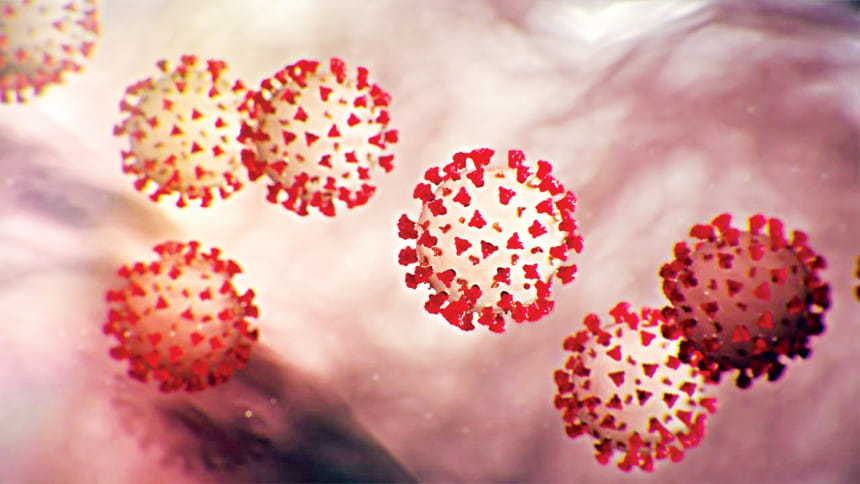Are test results always telling the truth?

Family members and colleagues of Rajshahi journalist Tobibur Rahman Masum could not believe it when his coronavirus test results came back negative shortly after his death with Covid-19 like symptoms on the night of June 28.
Masum, who was chief reporter at Rajshahi-based daily Sonali Sangbad, had been experiencing Covid-19 symptoms -- a constant high fever, fatigue, cough, severe breathing issues and chest pain, and losing his sense of taste -- his family members and doctors said.
Still, samples taken from his nose and mouth two days before his death tested negative, they said.
Fifty-two-year-old Masum first began suffering from fever on June 17. He was initially reluctant to get tested as he was trying to avoid putting extra pressure on limited testing facilities.
Finally convinced by his family, he agreed to be tested and his samples were collected on June 26. His test report became available on the night of June 28, half an hour after Masum died.
"He was a patient of heart and lung disease. We are certain that the reason of his death was heart failure, not Covid-19," said Dr Subrata Ghosh, in-charge of a coronavirus unit at Rajshahi Medical College Hospital, quoting from Masum's death certificate.
However, those close to Mamun found his negative test results difficult to believe.
"I didn't want to believe it when I learnt Masum was Covid-19 negative. I thought something could have happened with the test," said Mahmud Jamal Qaderi, editor of Sonali Sangbad.
Testing for Covid-19 has largely used reverse transcriptase-polymerase chain reaction (RT-PCR) technology to detect it in samples taken from the back of the nose or from the throat.
Senior doctors of RMCH explain how false negatives can occur in coronavirus testing done at RT-PCR laboratories. At least 30 percent of the Covid-19 negatives might proved to be otherwise in another test or by using other testing methods, they said.
"We test samples of saliva from the nose and mouth. The novel coronavirus may not always be present in these samples," said Dr Bulbul Hasan, professor of microbiology and co-chief of Rajshahi Medical College's RT-PCR laboratory.
"In the beginning of the virus attack, its presence can be found in the nose or in the mouth. But gradually, the coronavirus descends further inside the body. When it infects the lungs, its presence in the mouth or nose may sometimes become unlikely," he said.
Dr Bulbul referred to the example of Rajshahi's first coronavirus victim -- an 80-year-old man from Bagha upazila who died on April 26.
Six days before his death, the man's samples tested positive. But another set of his samples collected the day before his death came back negative, he said.
Prof Dr Khalilur Rahman, head of RMCH medicine department, corroborated Dr Bulbul's explanation, saying it is not guaranteed that the virus will be found in the samples taken.
"Gathering evidence of coronavirus from the nose and mouth is almost like fishing," Dr Khalilur told this correspondent. "Fishers do not find fish every time they drop their nets in a pond. Coronavirus is invisible. We cannot collect the sample by seeing its presence. It may be present in the samples taken or not. There's no guarantee."
"But doctors have other ways of identifying coronavirus by having X-rays or CT scans of the patients' chests. Seeing the X-ray or CT scan, a doctor can say if it is the novel coronavirus," Dr Khalilur said.
Negative results could be due to errors in sample collection as well but testing facilities remain overburdened, added Dr Bulbul.
"As we are tackling an increasing number of samples, human error with the samples is not unlikely. But we have no scope for repeating the test for the same person."
Globally, researchers found false negatives to be due to a number of reasons -- including the stage of infection at time of sample collection, how much virus is being shed by the patient, and samples not being collected or transported properly.

 For all latest news, follow The Daily Star's Google News channel.
For all latest news, follow The Daily Star's Google News channel. 



Comments